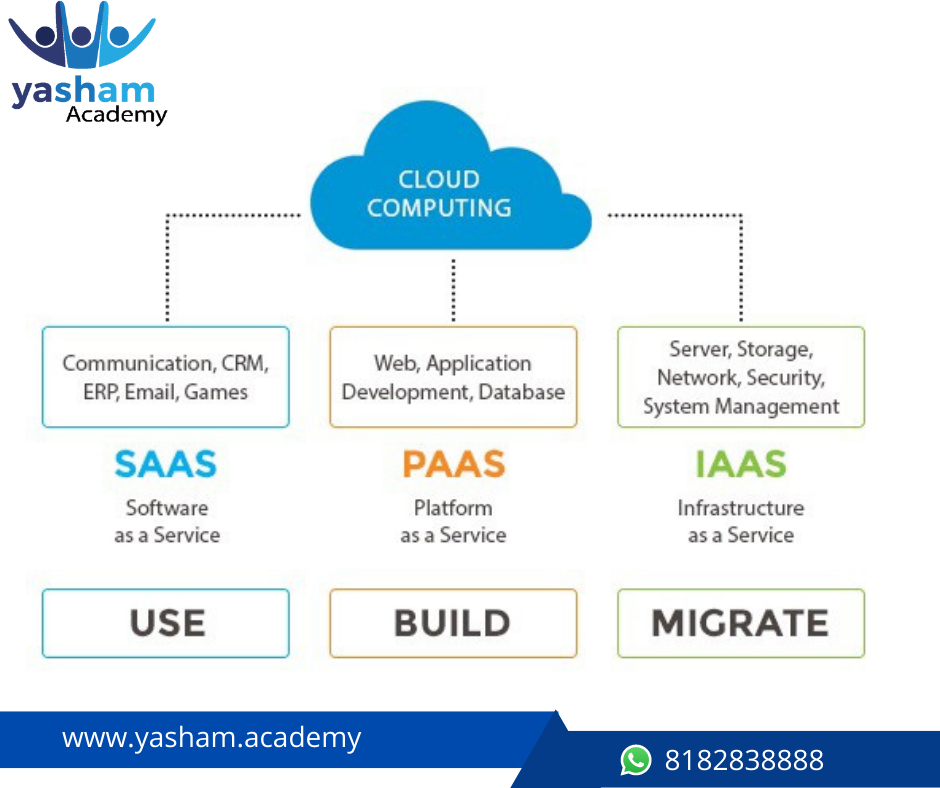What is Cloud Computing?
Cloud computing is the delivery of different services through the Internet. These resources include tools and applications like data storage, servers, databases, networking, and software.
Rather than keeping files on a proprietary hard drive or local storage device, cloud-based storage makes it possible to save them to a remote database. As long as an electronic device has access to the web, it has access to the data and the software programs to run it.
Cloud computing is a popular option for people and businesses for a number of reasons including cost savings, increased productivity, speed and efficiency, performance, and security.

KEY TAKEAWAYS
- Cloud computing is the delivery of different services through the Internet, including data storage, servers, databases, networking, and software.
- Cloud storage has grown increasingly popular among individuals who need larger storage space and for businesses seeking an efficient off-site data backup solution.
- Cloud-based storage makes it possible to save files to a remote database and retrieve them on demand.
- Services can be both public and private-public services are provided online for a fee while private services are hosted on a network to specific clients.
- Cloud security has become an increasingly important field in IT.

Public Cloud
The entire computing infrastructure is located on the premises of the CSP that offers Cloud services over the internet. This is the most economical option for those individuals/organizations that do not wish to invest in IT infrastructure. In a Public Cloud environment, the resources are shared between multiple users who are also called ‘Tenants’ The cost of using Cloud services is determined through the usage of IT resources consumed.
Private Cloud
Individuals/organizations that choose Private Cloud gets dedicated infrastructure that is not shared by any other individual/organization. The security and control level is highest while using a private network. The costs are born by an individual/organization and are not shared with any other individual/organization. Management of Private Cloud is taken care of by the user and the CSP does not provide any Cloud management services.
Hybrid Cloud
This Cloud deployment model includes the characteristics of Public Cloud and Private Cloud. Hybrid Cloud allows the sharing of data and applications between Public and Private Cloud environments. Organizations mainly use Hybrid Cloud when their On-Premise infrastructure needs more scalability, so they make use of scalability on Public Cloud to meet fluctuating business demands. Organizations can keep their sensitive data on their Private Cloud when reaping the power of the Public Cloud.
Community Cloud
A Community Cloud is a Cloud infrastructure that is shared by users of the same industry or by those who have common goals. This Cloud infrastructure is built after understanding the computing needs of a community as there are many factors including compliances and security policies which need to be included in the community Cloud infrastructure.

Types of Cloud Services
Regardless of the kind of service, cloud computing services provide users with a series of functions including:
- Storage, backup, and data retrieval
- Creating and testing apps
- Analyzing data
- Audio and video streaming
- Delivering software on demand
Cloud computing is still a fairly new service but is being used by a number of different organizations from big corporations to small businesses, nonprofits to government agencies, and even individual consumers.
Deployment Models
There are various types of clouds, each of which is different from the other. Public clouds provide their services on servers and storage on the Internet. These are operated by third-party companies, who handle and control all the hardware, software, and the general infrastructure. Clients access services through accounts that can be accessed by just about anyone.
Private clouds are reserved for specific clientele, usually one business or organization. The firm’s data service center may host the cloud computing service. Many private cloud computing services are provided on a private network.
Hybrid clouds are, as the name implies, a combination of both public and private services. This type of model allows the user more flexibility and helps optimize the user’s infrastructure and security.
Types of Cloud Computing
Cloud computing is not a single piece of technology like a microchip or a cellphone. Rather, it’s a system primarily comprised of three services: software-as-a-service (SaaS), infrastructure-as-a-service (IaaS), and platform-as-a-service (PaaS).
- Software-as-a-service (SaaS) involves the licensure of a software application to customers. Licenses are typically provided through a pay-as-you-go model or on-demand. This type of system can be found in Microsoft Office’s 365.
- Infrastructure-as-a-service (IaaS) involves a method for delivering everything from operating systems to servers and storage through IP-based connectivity as part of an on-demand service. Clients can avoid the need to purchase software or servers, and instead procure these resources in an outsourced, on-demand service. Popular examples of the IaaS system include IBM Cloud and Microsoft Azure.
Platform-as-a-service (PaaS) is considered the most complex of the three layers of cloud-based computing. PaaS shares some similarities with SaaS, the primary difference being that instead of delivering software online, it is actually a platform for creating software that is delivered via the Internet. This model includes platforms like Salesforce.com and Heroku.

Advantages of Cloud Computing
Cloud-based software offers companies from all sectors a number of benefits, including the ability to use software from any device either via a native app or a browser. As a result, users can carry their files and settings over to other devices in a completely seamless manner.
Cloud computing is far more than just accessing files on multiple devices. Thanks to cloud computing services, users can check their email on any computer and even store files using services such as Dropbox and Google Drive. Cloud computing services also make it possible for users to back up their music, files, and photos, ensuring those files are immediately available in the event of a hard drive crash.
It also offers big businesses huge cost-saving potential. Before the cloud became a viable alternative, companies were required to purchase, construct, and maintain costly information management technology and infrastructure. Companies can swap costly server centers and IT departments for fast Internet connections, where employees interact with the cloud online to complete their tasks.
The cloud structure allows individuals to save storage space on their desktops or laptops. It also lets users upgrade software more quickly because software companies can offer their products via the web rather than through more traditional, tangible methods involving discs or flash drives. For example, Adobe customers can access applications in its Creative Cloud through an Internet-based subscription. This allows users to download new versions and fixes to their programs easily.
The World of Business
Businesses can employ cloud computing in different ways. Some users maintain all apps and data on the cloud, while others use a hybrid model, keeping certain apps and data on private servers and others on the cloud.
When it comes to providing services, the big players in the corporate computing sphere include:
- Google Cloud
- Amazon Web Services (AWS)
- Microsoft Azure
- IBM Cloud
- Alibaba Cloud
Amazon Web Services is 100% public and includes a pay-as-you-go, outsourced model. once you’re on the platform you can sign up for apps and additional services. Microsoft Azure allows clients to keep some data at their own sites. Meanwhile, Alibaba Cloud is a subsidiary of the Alibaba Group.
Kick start an exciting IT career in the Year 2022 by learning Cloud Computing at Yasham Academy.
Cloud computing delivers computing services—including servers, storage, databases, networking, software, analytics, and intelligence—over the Internet (“the cloud”) to offer faster innovation, flexible resources, and economies of scale. You typically pay only for cloud services you use, helping lower your operating costs, run your infrastructure more efficiently and scale as your business needs change.
For more details 8182838888



